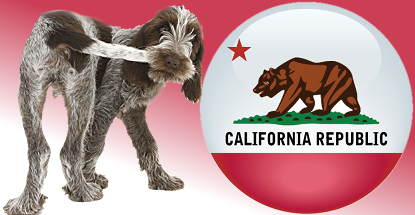 This week’s iGaming Legislative Symposium in Sacramento, California offered an appropriately dubious view on the state’s chances of passing online poker legislation in the near future.
This week’s iGaming Legislative Symposium in Sacramento, California offered an appropriately dubious view on the state’s chances of passing online poker legislation in the near future.
As compiled from a torrent of tweets from the likes of @OPReport, @CAPokerNews, @stearnsseattle and @ftreric, the confab got off on a pessimistic foot during the keynote address from Assemblyman Mike Gatto, who has authored one of the three distinct online poker bills vying for passage in the current legislative session.
Gatto said that, going into this year, he’d pegged the odds of a bill passing in 2015 at 50:50. Gatto said he now views chances for passage by 2016 at no better than 35%, largely because stakeholders remain as divided as ever.
Gatto said politicians were being confronted with “15 different factions coming in and saying ‘this is a line in the sand, my way or the highway, we hate you for the rest of your life,’” leading pols to wonder “why do I even want to vote for this bill?”
Gatto also said online poker remains a fringe issue for most state residents, and thus a low priority for politicians. Of the over 57k emails Gatto’s office received in 2014, only four or five were about online poker.
PECHANGA MORE BOTHERED BY TRACKS THAN BAD ACTORS
Gatto’s AB 9 legislation contains a strict ‘bad actor’ clause that would bar participation by the likes of PokerStars. Gatto’s bill is supported by the influential Pechanga Band of Luiseño Indians and the Agua Caliente Band of Cahuilla Indians.
During the Future of iGaming in California panel, Pechanga attorney Steve Bodmer dismissed suggestions that the tribe was being obstructionist because it feared the Stars juggernaut. Bodmer said Pechanga “could compete” with the likes of Stars but was taking a “principled” stand against the involvement of bad actors.
However, Bodmer said the real sticking point for Pechanga was the participation of state racetracks. While the tracks are currently the only entities offering some form of legal online gambling in the state via their advance deposit wagering (ADW) sites, Bodmer noted that you can’t play poker at a California racetrack. As such, allowing tracks to add poker would represent an unwarranted expansion of gambling that would violate tribal compacts.
At a later panel, racing industry lobbyist Robyn Black said online poker was a new form of gaming for California and thus all existing state gaming interests had a right to be included. Black doubted that any poker bill would pass over racing’s objections, as many state legislators had tracks in their districts and online poker would act as a powerful marketing tool that would help preserve racing industry jobs.
ONLINE POKER NO LONGER A CASH MACHINE FOR OPERATORS
The idea of online poker as a marketing tool to aid brick-and-mortar operations was seconded by Haig Kelegian, owner of The Bicycle Casino and other state card rooms. Eilers Research analyst Adam Krejcik expanded on this thought, arguing that online poker was useful only as a complement to other operations.
Krejcik said the poker landscape had changed dramatically since the heyday of 2006, as online entertainment options have expanded to include social and mobile gaming, daily fantasy sports and other products that didn’t’ exist a decade ago. Krejcik said operators were fooling themselves if they believed an intrastate poker-only market – even in a state as large as California – would be a source of serious profits.
ONLINE LOTTERIES SEEKING RAWA CARVEOUT?
One of the more interesting panel comments came during a discussion of the Restoration of America’s Wire Act (RAWA), the Sheldon Adelson-sponsored legislation that seeks to impose a federal ban on online gambling.
State lottery umbrella groups have previously stated their blanket objections to RAWA but Lowry Strategies president Jana McKeag said state lotteries were engaged in behind the scenes negotiations with Sen. Lindsey Graham (R-SC) to obtain a carveout from RAWA for their online operations.
It’s unclear what form this carveout would take; whether state lotteries were simply seeking to preserve their ability to sell traditional draw tickets online, or whether the more expansive operations in states like Georgia, Michigan and Minnesota would be allowed to carry on as normal.
The latter would seem a problematic choice, given that online scratch tickets are essentially slots by another name. If RAWA’s backers wish to portray their ‘think of the children’ rationale as anything but a cynical ploy, it’s hard to see how they could allow state lotteries to run online casinos, especially if state-licensed brick-and-mortar casinos, racetracks and other stakeholders were left on the sidelines.
